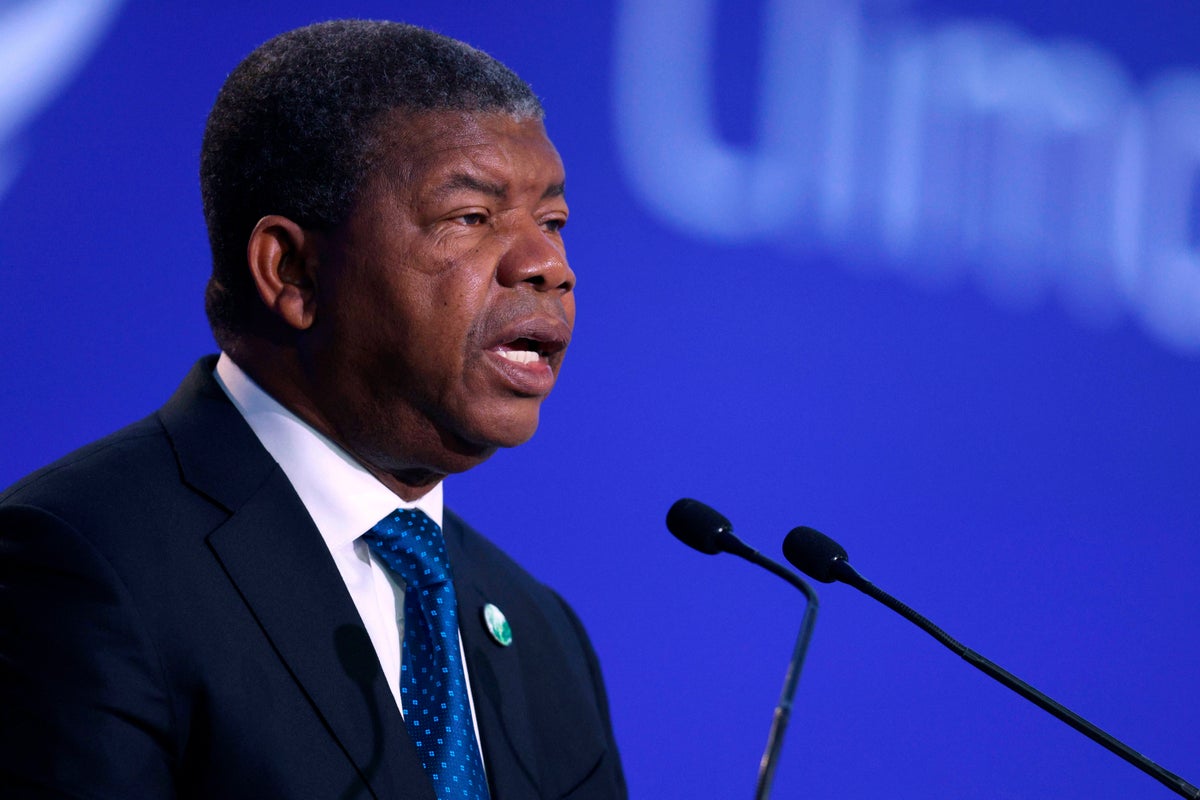
As Angola — one of Africa’s largest oil producers — prepares for a general election Wednesday, voters are debating whether they should vote and sit at the polling stations to monitor the process or cast their ballots and go home.
The call to vote and stay is coming from the longtime opposition party, the Union for the Total Independence of Angola, known as UNITA, which says a large presence of people at polling places is needed to keep the elections accurate.
President Joao Lourenco is running for a second five-year term while his party, the Peoples' Movement for the Liberation of Angola, known by its Portuguese acronym MPLA, is campaigning to extend its 47-year run as the country's ruling party.
Leading the competition is the United Patriotic Front coalition, which includes UNITA and its presidential candidate, Adalberto Costa Junior.
UNITA is showing considerable momentum and has succeeded in getting backing from several major opposition figures, including leading intellectuals.
In the 1992 elections, UNITA angrily disputed its loss and plunged the country back into civil war, which lasted for nearly 10 years.
This election campaign has been notably peaceful, with few incidents of violence. Both Lourenco and Costa Junior concentrated on speaking about issues, not on attacking the other parties.
“There were a lot of provocations during the campaign, but we decided to not fight back. Instead, we will present our complaints to the courts,” said Costa Junior in a well-attended rally in Cazenga, a neighborhood on the outskirts of Luanda.
Over the weekend, at Camama, another Luanda suburb, Lourenco avoided attacking UNITA directly and instead focused on describing the achievements of his government, including an agreement with IMF to support the Angolan economy.
Five other parties and one coalition are contesting the elections, a far cry from the years that the MPLA ruled over the country as a one-party state. This will be the country's fifth multi-party election since 1992.
More than 14.3 million people have registered to vote in these elections, of Angola's overall population of 33 million. In the previous general elections in 2017, voter turnout was 57% of those who registered.
For the first time, Angolans in the diaspora are able to vote and 22,560 voters have registered to vote outside the country.
The National Commission for Elections will have 105,952 officials and 26,443 voting booths for the elections.
In addition to choosing a president, voters are to select 220 members for the National Assembly and the ruling MPLA is challenged to maintain its current majority of 150 of those seats.
Angola, a former colony of Portugal, is a major producer of oil and diamonds yet years of civil war and corruption have left many Angolans in poverty.
Angola's economy is battling an economic recession and inflation which has caused the cost of living to soar in urban areas. A severe drought has parched Angola’s southern provinces, affecting more than 2 million people.
As campaign rallies were in full swing, the body of Angola's longtime president, Jose Eduardo dos Santos — who died in July at the age of 79 in Spain — was returned to the country. The fate of the former president's body was decided by the Spanish courts, after some of his children pressed a case to have his remains stay in Spain. A court in Barcelona ruled that dos Santos died of natural causes and that his widow, Ana Paula dos Santos, should determine where he should be buried, not his children by an earlier marriage.
Dos Santos ruled Angola for 38 years, from 1979-2017, winning multiple elections, although opposition supporters alleged he benefited from the country's uneven political playing field and that the polls were manipulated. He is widely accused of amassing a fortune estimated at billions of dollars through corruption during his years in office.
The body of dos Santos arrived last Saturday aboard a passenger jet operated by TAAG, the state-owned airline, while the family came on another plane organized by the Angolan government. The funeral and burial for dos Santos will only take place after the election.
Controversy arose because the coffin was transported in the plane's luggage compartment with no military escort to move the casket from the aircraft. In 1979, when the country's first president Agostinho Neto died in Moscow, his coffin was aboard in the passenger compartment flanked by top officers of the Angolan army.
Dos Santos's burial should not affect the electoral results and the family dispute over his body was not a major issue in the election campaigns.
.jpg?w=600)






